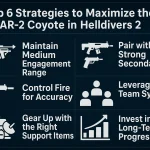Path of Exile 3.26 introduces subtle but meaningful shifts in Atlas progression, making it more important than ever to carefully plan your passive tree. For players who want to maximize profits while weaving together both Delve and Betrayal mechanics, the key lies in balancing early consistency with long-term sustainability PoE 1 Currency. This guide breaks down a step-by-step strategy that ensures your maps remain profitable, your crafting options expand steadily, and your progression into endgame feels smooth rather than forced.
Focusing on Betrayal
The heart of this approach begins with Betrayal. Investing into nodes such as Bribery, Effective Leadership, Pillage and Plunder, Test of Loyalty, and Lethal Extraction ensures that Syndicate encounters appear in nearly every map. This consistency is invaluable early in a league because Betrayal safehouses provide a mix of rewards that are difficult to replicate elsewhere—veiled mods, exclusive uniques, and a steady stream of crafting opportunities.
Unlike some mechanics that can feel streaky, Betrayal nodes make progress predictable. Every map brings you closer to filling a safehouse, and every safehouse guarantees access to rare crafting benches that can push your gear beyond basic trading. The faster intelligence gain from these nodes also accelerates safehouse rotations, meaning you’ll unlock powerful recipes such as multi-mod crafts earlier than most players. That timing advantage alone can give you a huge edge in both crafting flexibility and market sales.
Building Around Delve Efficiency
Once Betrayal is established as your foundation, the next layer of the strategy is Delve. To get the most value, you want nodes like Frantic Mining, Shaping the Mountains, Guarded Hordes, and Packed with Energy. These improve Sulphite acquisition, making your Delve runs more frequent and rewarding, while also boosting the density of rewards inside the mine.
Delve’s value lies in fossils, resonators, and currency drops, all of which feed directly into crafting and trading. Fossils can create gear combinations that are nearly impossible with standard crafting, while resonators are always in demand throughout the league. By running Syndicate encounters for crafting unlocks and then using Delve to farm fossils and currency, you establish a feedback loop where one mechanic fuels the other. Betrayal unlocks the crafting doors; Delve supplies the raw materials to take advantage of them.
Sustaining Atlas Progression
Farming mechanics are only profitable if your map pool stays alive, which makes sustain nodes a crucial part of the plan. Picking up clusters like Vivid Memories and Chiseled Perfection helps keep maps flowing by improving drop rates and enhancing shrine bonuses, which indirectly makes clearing faster.
On top of that, Kirac nodes such as Commissioned Officer and Strategic Patrol provide access to additional map variety and rare layouts, helping you cover gaps in your pool without needing to constantly buy maps. While they might seem secondary to Betrayal and Delve, these sustain investments are what keep your farming engine running in the long term. Without them, you risk stalling out before your strategy pays off.
Pacing Your Progression
A common mistake is to push too hard, too fast. Betrayal encounters scale in difficulty, and running them immediately in red maps can feel brutal, especially in the early weeks of a league when your gear isn’t yet refined. A safer route is to farm Syndicate in white and yellow maps first, where the fights are more forgiving but still provide the same valuable recipes and loot.
This slower climb gives you room to gather gear, experiment with crafted mods, and build confidence in handling Syndicate mechanics. By the time you’re ready for red maps, your character should have stronger defenses and more optimized gear, making encounters smoother and far more profitable. In short, patience pays off.
Adjusting Based on Playstyle
One of the strengths of this combined strategy is its flexibility. Players who enjoy the sprawling exploration of Delve can push further into Abyssal Depths nodes or fossil-heavy paths on the Atlas, stacking rewards that directly benefit Sulphite investment. Meanwhile, players who love the Betrayal system can lean harder into nodes that manipulate Syndicate intelligence or amplify safehouse loot.
You can also supplement this core with optional mechanics depending on your playstyle. Strongbox nodes add consistent bursts of loot, while Map Boss clusters provide valuable unique drops and fragments. The trick is to customize your Atlas so it enhances the mechanics you personally enjoy while still keeping the foundation of Betrayal and Delve intact.
Final Thoughts
The Betrayal and Delve Atlas tree strategy in Path of Exile 3.26 offers one of the most stable and versatile approaches to endgame farming buy PoE Currency. By anchoring your early progression around Betrayal for reliable safehouse rewards and then layering Delve nodes for resource-heavy returns, you create a loop that supports both crafting and currency flow.
What makes this strategy shine is its balance: it rewards careful pacing, allows flexible adjustments based on personal preference, and ensures that your map pool remains sustainable throughout. For players who value both efficiency and adaptability, this dual-path approach provides a strong foundation for success in one of the game’s most demanding endgames.


